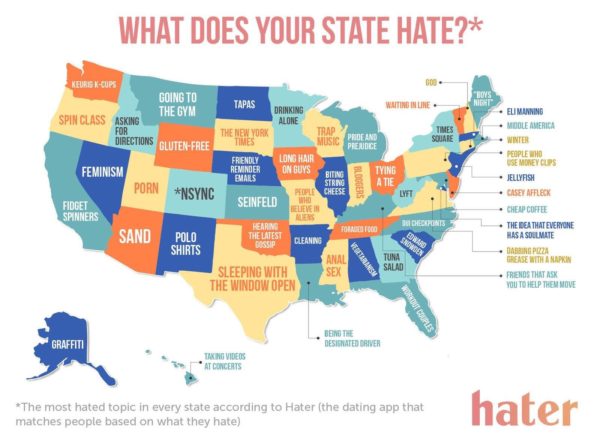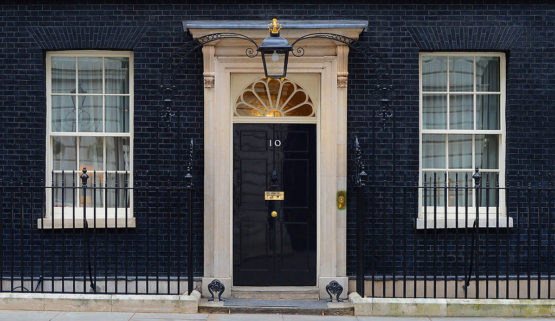Category Archives: Elsewhere
But, bygones!
I mostly got it because their children’s programming is supposed to be pretty good. I haven’t poked around too much, but it… doesn’t seem bad, at least. So maybe we’ll have it for a while and then we won’t. Lain has learned to load up and watch videos on the tablet, which is a mixed blessing. The idea of Netflix occurred to me when we were watching an Amazon Prime video on phonics. YouTube also has a good app for kids.
It’s just amazing how much stuff there is out there.
Despite the above-mentioned bad experience, I am genuinely impressed by Netflix the corporation. One thing in particular jumps out at me, which is that they pivoted really quickly to streaming video and did so before they had to. A lot of the time when a company gets the sort of market position that Netflix does, the tendency is to sit on it until someone innovates around you. In this case, they made the determination pretty early that streaming was the future and basically retired their own business model.
Anyway, with football season over I was able to scale back on our satellite service and still come out way ahead.
Some people did a thing, and some folks are not pleased:
I… sort of like the idea? As an introvert, maybe I should hate it. Or maybe I should love it, since I can decline to wear one if I’m tapped out and people will not bother me? It seems to actually cut across the introvert/extrovert divide, with both sides seeing problems. “Why should someone need a button for me to talk to them?” The extrovert asks.The perception of the London commuter as an unfriendly curmudgeon has been bolstered by the mixed reaction to a mystery campaign to encourage tube passengers to chat.
Badges emblazoned with the question “Tube chat?” have been distributed on the London Underground network, to the horror of some regular users.
Transport for London (TfL) said it was not behind the badges, which are identical in font and design to the official “Baby on board” pins given to expectant mothers.
Commuters were quick to express their disdain for the idea, for which no individual or group has claimed responsibility.
But those who are not especially socially attuned don’t always pick up on the cues that make the distinction between being friendly and being a bother. This comes up in gender discussions a lot because women often both (a) don’t want to be bothered by strangers unless (b) they are the right strangers. And guys have little or no idea whether they are the right stranger or not. When women complain, men often hear that they’re going to get their heads ripped off if they get it wrong. When men complain, women often hear that men just want license to trap women in conversations that it would be rude to escape. It’s not reasonable to expect women to take all comers, nor is it reasonable to expect men to be mindreaders.
As it applies to that, it also applies to just talking to people. Social dolt that I am, I am not good at picking up on the cues. The only real exception are smoking habitats. You can sort of tell if someone on the smoking deck doesn’t want to talk by their body language and location. If they’re off to the side, or tilted slightly away, you need a reason to talk to them (“Do you have a light?”
For the most part, though, smokers tend to be a really social bunch and if you’re in the communal area, the threshold for starting a conversation can be really low. Which was, really, one of the coolest things about smoking for me. It kind of put me into low-pressure socializations. My social skills improved a lot because of smoking. It provided me an environment where I could understand the rules, and where not wanting to talk to people had to be a conscious decision. One that I would sometimes make, and sometimes not make.
So any sort of opt-in or opt-out mechanism for sociability seems to be in the best interest of everybody. It doesn’t solve the gender problem before (because it’s as likely to be person-specific, not situation-specific), but it’s a start.
I plan to write more Over There about the Electoral College (I think), but I did want to touch on a Washington Post piece arguing that two arguments in favor of it are bunk. I believe he’s wrong on the second one:
Some critics say that allowing voters to directly elect the president would splinter the two-party system. It would encourage many candidates to contest the general election, thus producing a winner with only a small share of the vote.
This is also wrong. In a system of direct election, potential candidates risk their political futures by running against the official party nominees. And there is no compensation. You win nothing by coming in third. So there is little incentive to run.
By contrast, the electoral college encourages third parties, especially those with regional bases, because by winning a few states they may deny either major-party candidate a majority of the electoral vote. You can come in third and still win a prize. Such a result was certainly the goal of Strom Thurmond in 1948 and George Wallace in 1968. Imagine giving these racist candidates leverage to negotiate with the leading candidates before the electoral votes were officially cast.
Now, I would favor replacing the electoral college with a national popular vote (and yes, did so prior to this election). But a plurality-based national popular vote really is a problem, and precisely for the reason being “debunked.”
There are two kinds of third-party candidates. First, there is the regional third-party candidate and the national. He points out Strom Thurmond and George Wallace, but those are somewhat outdated exceptions. The closest we’ve had since is Evan McMullin, and he never got as much attention as Gary Johnson this cycle. McMullin did make the argument that if the election can be thrown to the House then he can win it in the House, but that was never a viable argument. Rather, winning Utah was mostly seen as a benchmark of success. There are other benchmarks for the other kind of candidate.
The second kind of candidate is the more common kind: The national third-party candidate. Gary Johnson, Ralph Nader, Ross Perot, John Anderson, and more. All of these people are more recent than Edwards’s example. None of them had all that much success, but a part of that is attributable to the electoral college itself. At some point, though, it becomes apparent that the bar for winning is so high for them so as to be impossible. They could win the popular vote but still lose the election because how do they get to 270? Contrast this with governor races, where candidates can and do get a plurality and often get much larger chunks of the vote when they don’t. It’s easier to run for governor than president, of course, but the complete absence of a path to the White House scares off potential investorscontributors and volunteers that would make a national campaign possible.
A long time ago, conservatives and anti-Trump Republicans were looking for a candidate to run a third party candidate. None was found. I don’t know if it would have been any different under a national popular vote, but I do think it might have been. There would have been a clearer path to the White House that wouldn’t have relied on renegade electors. But as my mind drifted I thought of the potential challenges for a third party, and one of the biggest by far was the Electoral College. As Edwards points out, it’s not responsible for the two-party system, but it does provide yet another firewall.
Which is, incidentally, a reason not to like the Electoral College. I support a two-party system but want the parties to be able to challenge it. The Electoral College makes that so daunting that it’s unlikely any serious effort will be made (at least at the presidential level. A First-Past-The-Post system makes it easier. Which is good! Except that it would encourage outcome distortions, which is bad!
So, contra Edwards, we actually do need some manner of dealing the plurality problem. That can be done with a separate runoff or ordered ballots or something else. Maine, which elects its governor the same way Edwards wants to elect our president, just voted to implement ordered ballots (IRV) precisely to deal with the problem he says plurality victors don’t cause.
This is rough. Very rough, kinda stream of consciousness, so keep that in mind.
I was looking at this map, and I had something of an epiphany regarding how so many voters could be OK with Trumps pretty naked racism & sexism. I’m sure some percentage of his voters just blew it off as un-serious, but the evidence of his attitudes was stark enough I figure a person would have to be working that lie pretty hard. So why did so many find it OK enough to vote for him? I think the answer lies in the demographics.
I grew up in the late 70’s/80’s, in very rural WI. While I did witness some hardcore racism & sexism, for the most part, everyone was pretty tolerant. But there was a lot of low level racism & sexism; call it ‘-ism-light’. Enough that I was steeped in that undercurrent as I grew up. It’s surprising how deeply it embeds, and sticks with you.
I left rural WI, joined the Navy, got educated in Madison, and live near Seattle, so I’ve had time & experience to work past the -isms, but even now, seeing ‘-ism-light’ doesn’t cause a reaction. I have to parse it, process it, and then I recognize it and decide it’s not OK. That filter I grew up with isn’t gone, I’ve just got a second filter on top of it, courtesy of diverse exposure & experience.
But if you never left those places, even if the environment is not so steeped in -isms anymore, people my age, who don’t have that second filter, they will have a strong tolerance for such things. They probably wouldn’t accept it in themselves, or their immediate family and friends, but the more removed an offensive person is, the better the ability to tolerate it to a degree.
So Uncle Ned who can’t stop making racist & sexist jokes, he doesn’t get invited to family gatherings very often. But Trump? He’s so far removed…
I had been spending quite a bit of time arguing that Trumpism could win, but completely regarded that Trump himself would.
I’ve been wrong about him time and time again as a candidate. I hope that I am shown to be wrong about him as president.
 Everybody has a theory on where the Republican Party goes from here, but all of the theories are based on incomplete information. Not just because predicting the future is hard, but also because we still don’t know what precisely propelled Trump to the nomination. We know the combination of things, but not how important each aspect of it was. Would a disciplined nationalist have been able to accomplish it? Would a True Conservative with an aggressive middle finger have accomplished it? Would Mark Cuban have been able to do it? Hulk Hogan? This is important because nobody will be able to bring the exact same set of ingredients to the table, and we don’t know how transferable Trumpism is to people who are not Donald J Trump.
Everybody has a theory on where the Republican Party goes from here, but all of the theories are based on incomplete information. Not just because predicting the future is hard, but also because we still don’t know what precisely propelled Trump to the nomination. We know the combination of things, but not how important each aspect of it was. Would a disciplined nationalist have been able to accomplish it? Would a True Conservative with an aggressive middle finger have accomplished it? Would Mark Cuban have been able to do it? Hulk Hogan? This is important because nobody will be able to bring the exact same set of ingredients to the table, and we don’t know how transferable Trumpism is to people who are not Donald J Trump.
In addition to what has brought the Republican Party here, there is also the question of how its leaders respond. A lot of them are clearly uncomfortable with Trump, but not to the point that they are willing to break party protocol. It is unlikely that Trump’s priorities are shared by a majority of elected officials, but they are also unlikely to stand in the way of an oncoming truck. It’s also not clear which aspect of Trump they are uncomfortable with (or most uncomfortable with). Some could align with Trump Nationalism (defined here as a white ethnocentric opposition to immigration, trade, and a globalist system that is believed to be disadvantageous to the US) without the vulgarity. Some don’t care about the vulgarity as long as it gets votes and they can sneak in some tax cuts and/or goodies for their supporters.
So the machine contains many moving parts, some at odds with others. There is no central brain to it all and nobody to decide where things go from here, save perhaps the voters. We don’t know exactly what the voters want, we don’t know what the electeds will tolerate, or what the donors will contribute to. Trump has no obvious successor or united organization, nor does his opposition have a singular spokesperson or organization. There is no obvious path forward, only potential paths with reasons that they may occur or may not. So rather than predicting the future, we should evaluate potential futures. (more…)
For me it’s Johnson vs. Clinton. I know Johnson isn’t going to win and I believe Clinton will probably win.
The advantage with voting for Johnson is that the more votes he gets, the more some of the issues I like will be highlighted, like decriminalizing drugs, ratcheting down police militarization, promoting civil liberties more robustly, and evincing skepticism about policies that might lead the US into another land war in Asia. It will also remind Clinton (assuming she wins anyway) that she needs to fight for our votes.
The disadvantages. Aspects of Johnson’s message I don’t agree with might be highlighted even more. I’m not too keen on decreasing the size of the federal government in the way that he’d probably do it. I don’t know of any explicit statement he’s given on Obamacare this election cycle, but I assume he’s hostile to it and is likely to want something much different from me.
More important, this election requires me to take a stand against Trump in a way that I haven’t really had to take a stand against a major party presidential candidate before. While in general Johnson may take away more votes from Trump than from Clinton, in my case a vote for Johnson takes away a vote I would have cast for Clinton. A vote for Clinton is a repudiation of Mr. Trump in a way that a vote for Johnson isn’t.
David Cameron announced his resignation today, to make room for Prime Minister Theresa May. He seemed really quite chipper about it:
Wow, Cameron announces his resignation as prime minister, then walks back inside *singing* while still mic'd: pic.twitter.com/wb4adNcCnk
— (((Yair Rosenberg))) (@Yair_Rosenberg) July 11, 2016
(If you can’t listen, you can hear him whistling as he enters.)
As said in the title, tough, this is not a post about Brexit. This is a post about Cameron’s soon-to-be former residence, 10 Downing Street. It is one of my head of government houses ever. Why? Because of the standard picture:
This picture makes it look so… quaint. One of the leaders of the free world lives in what looks like a townhouse. You’ve got an entrance with a little lamp overhead. You have those windows where the Prime Minister of their spouse can peek through and see who is at the door. You have the 10 labeled, just to make sure the delivery guy doesn’t deliver the package to 8 or 12 Downing Street by mistake.
It’s really quite marvelous.Of course, in reality 10 Downing Street is really quite expansive. And rather than being next to 8 and 12 Downing, it’s next to 9 (where the Chief Whip lives) and 11 (where the Chancellor lives).
And security there is a bigger deal than it first appears. There was an attack by the IRA in 1991, and since then they’ve done some safe-guarding.
Even so, I just love the idea of a prime minister living in a nice, snug townhome.
Long-time readers can skip the first paragraph if they remember this story.
The longest Christmas Party I ever attended was with my ex-girlfriend Julia. She was my ex-girlfriend at the time, and had been for about a week-and-a-half. I had broken things off a couple weeks before Christmas, and that was going to make things difficult for her. So I agreed, without much hesitation, to go to the family Christmas party and she would let everyone know we broke up after. Her brother’s then-girlfriend (now wife) didn’t like me for some reason. She got wind of it, and told everybody. But she didn’t tell me, or Julia, that everybody knew. Nobody said a word, but it was three hours of exceptionally cold treatment.
Last week was the Residency Dinner for my wife’s work. That’s where they honor the residents and instructing physicians, like my wife, are expected to be there. Which, hey, it’s free food and a nice night on the town. There are worse things.
One of my wife’s colleagues is on her way out, and not by her choice. In the jobs where my wife has worked, doctors aren’t fired but rather have contracts that are not renewed. The result is that you are fired way in advance of your departure date. Sometimes months. This can be kind of awkward because your final couple months there, everybody knows that you’ve been fired. And so it was this this doc. Except this doc, by dint of the occasion, was actually given an award. By the director that fired her. In front of a room full of people that know exactly what happened.
The thing is, this isn’t even the first time this has happened. It’s the first time it’s happened at this job, but it happened twice under her previous one (which did the same contract thing) at the “Physician Appreciation Dinner”. One involved a doctor who wasn’t fired, but was pressured to resign due to health reasons. But she had the social obligation to go to the PAD, be a part of the slideshow, accept some certificate thing, and be thanked for the job that she was being told not to do anymore. The other one was even more complicated, with a physician that was fired and then was mysteriously unfired. All in the run-up to the PAD.
It’s all kind of a surreal experience.
One that kind of hits close to home. In Arapaho, Clancy really got the sense that the only reason they didn’t fire her was because they couldn’t replace her. It’s not that she was bad at her job – in fact, none of the three mentioned above were actually bad at their jobs – but some people (or at least one person) just didn’t like her. But there was always a feeling like if they could just find someone else to do the job, they wouldn’t renew. Well, it’s good to be needed and all, but it’s not fun to work in a place where you are merely tolerated. Attending a PAD by people who are just tolerating you isn’t as bad as doing so when they just fired you, but it’s vaguely familiar.
I am happy to report that none of this is an issue at her current job. Her contract was renewed last week without much fanfare.






